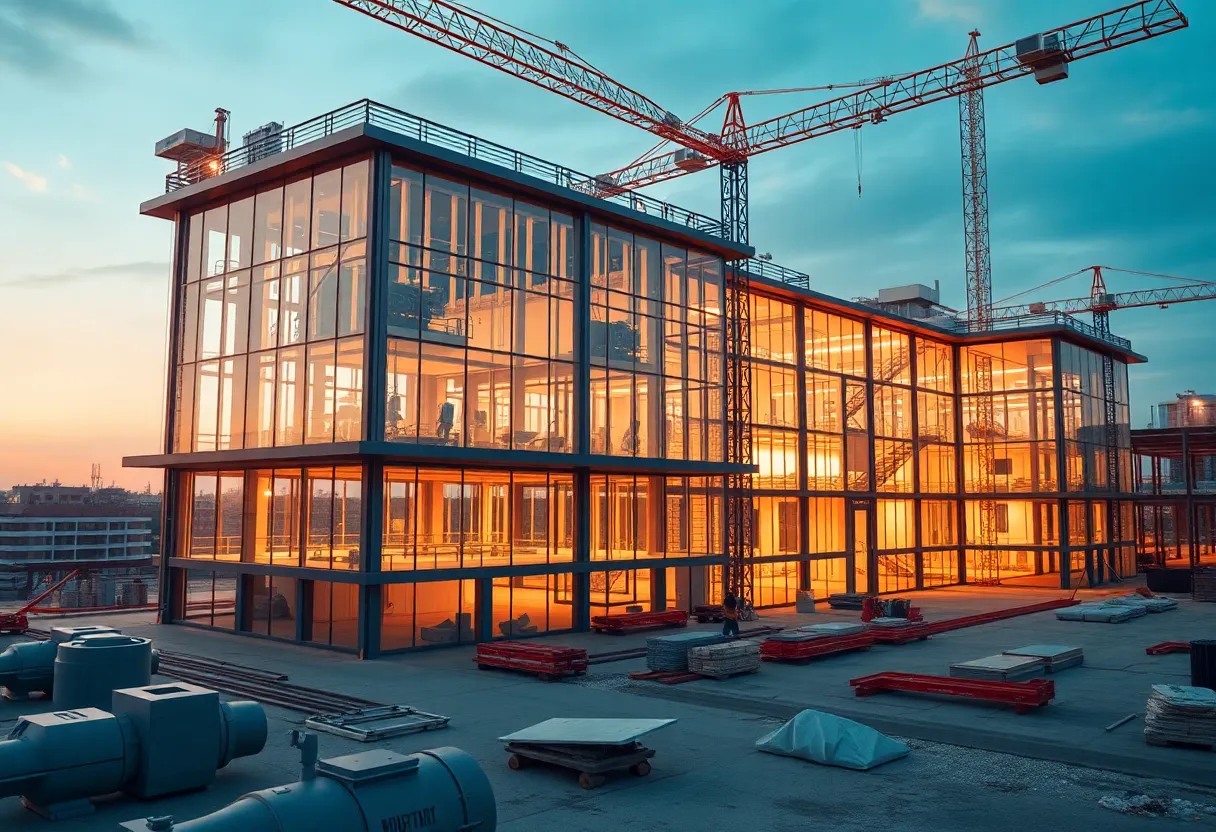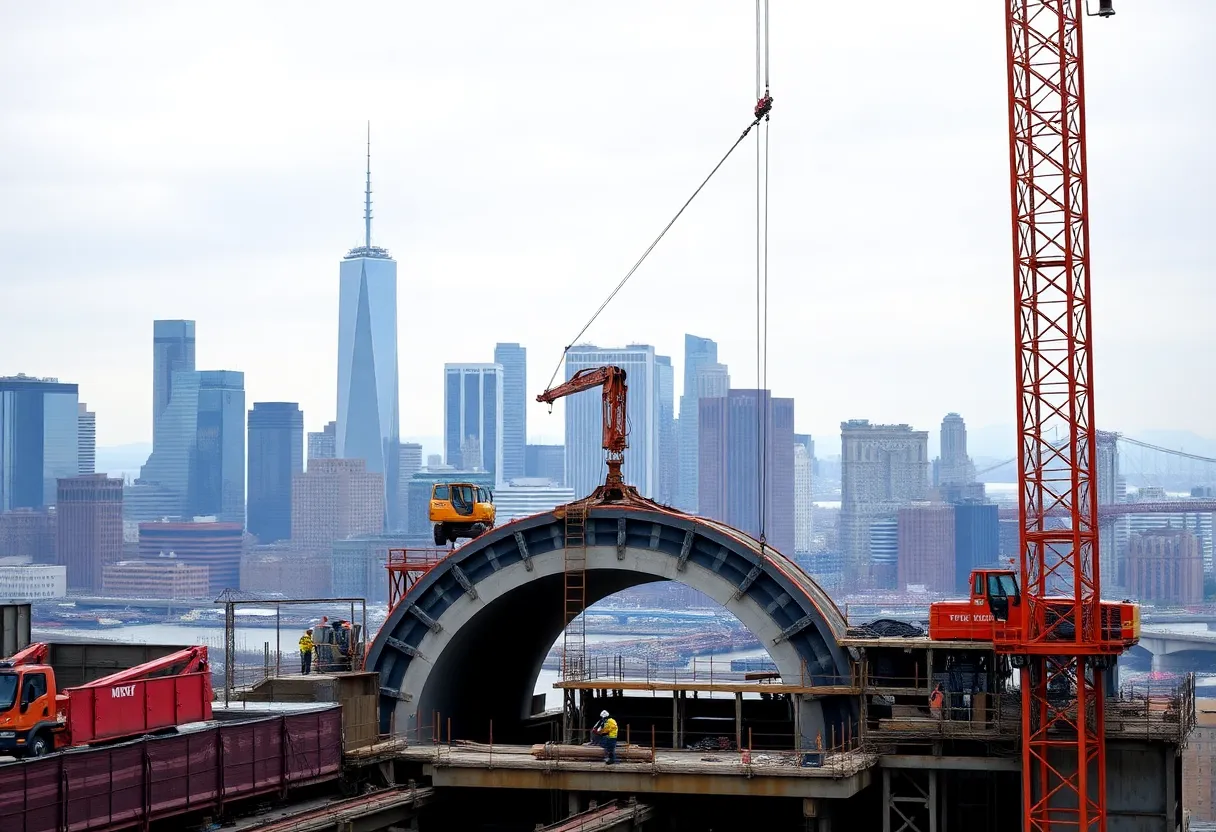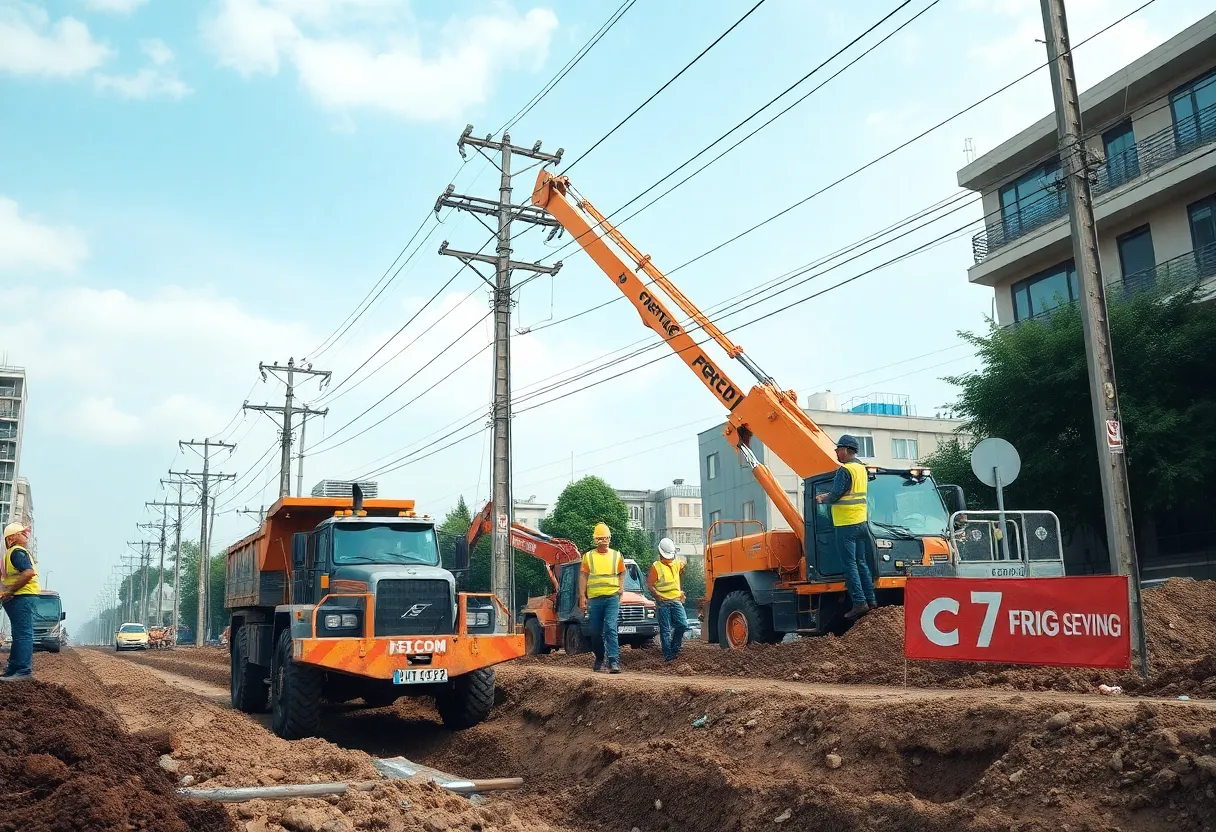News Summary
The construction industry is significantly transforming as companies adopt artificial intelligence (AI) to improve efficiency amidst rising costs, labor shortages, and sustainability concerns. AI enhances project management capabilities, tackles escalating material prices, and fosters innovation through predictive analytics, cost management, and technology integration. As AI becomes a strategic necessity, construction professionals are leveraging its potential to ensure smarter, safer, and more sustainable projects, making early integration essential for competitive differentiation.
Artificial Intelligence Revolutionizes Construction Industry for Enhanced Productivity and Risk Management
The construction industry is experiencing a significant transformation as artificial intelligence (AI)productivity and risk management. The complexity of construction projects has surged, far outpacing the available productivity tools. This growing complexity, combined with tighter schedules, rising costs, workforce shortages, and increasing sustainability pressures, has prompted many in the industry to turn towards AI as a promising solution.
Historically, the adoption of AI in sectors such as engineering and construction has lagged when compared to other industries. According to a recent report, the integration of AI tools within construction has been slower than expected. However, gradual progress is evident as developers, owners, contractors, and service providers start to harness the potential of AI technologies.
Amid an expanding manufacturing sector in the U.S., there has never been a better time for the construction industry to leverage AI for strategic advantages. By implementing AI-driven solutions, construction professionals can enhance efficiency, mitigate risks, and improve overall outcomes throughout the lifecycle of their projects. Much like the transformative impact of cloud technology and search engines, AI is evolving into an essential component of the construction process.
AI Applications in Construction
One of the essential applications of AI is in predictive analytics, which enhances site selection capabilities. By analyzing demographic data, traffic patterns, geological conditions, environmental impacts, and local workforce skills, AI helps project teams make more informed decisions about where to construct.
Building Information Modeling (BIM) integrated with AI also optimizes design layouts, identifies potential system clashes, and generates design alternatives that meet project requirements more effectively. This technological integration allows for increased efficiency during the design phase, leading to smoother project execution.
Cost estimation has vastly improved through AI, which analyzes historical and real-time project data to minimize budget overruns. The technology can also address scheduling delays by using real-time data to identify risks and suggest dynamic rescheduling strategies, making project timelines more reliable.
Additionally, AI-powered robots and drones are revolutionizing the way construction sites are monitored. These technologies assist with site surveys, safety monitoring, and progress tracking, addressing labor shortages that many sectors within construction face. Furthermore, AI contributes to sustainability initiatives by identifying eco-friendly materials, reducing waste, and monitoring carbon emissions throughout project lifecycles.
Compliance and Collaboration
AI is increasingly important for supporting Environmental, Social, and Governance (ESG) compliance, providing insights into energy usage and green building strategies. Enhanced platforms that utilize AI improve collaboration, transparency, and data sharing among project teams, allowing for a more integrated approach to project management.
Quality assurance is another area where AI demonstrates its strengths. By comparing project execution to established design specifications, AI can identify quality issues early, significantly reducing rework costs. In terms of safety, AI monitors job site conditions in real time, leveraging predictive modeling and computer vision technology to prevent accidents and enhance worker safety.
Strategic Imperative for the Future
As the construction industry evolves, the adoption of AI technologies is increasingly viewed as a strategic imperative for leaders aiming to create smarter, more resilient, and sustainable projects. The greatest benefits from AI are realized when it is integrated early in preconstruction and design phases. This proactive integration fosters improved collaboration and performance by encouraging early stakeholder involvement and data-driven planning.
In addition, the intersection of AI and gamification is enhancing training opportunities and stakeholder engagement through virtual reality and interactive dashboards. Organizations can learn valuable lessons from the structured approach to AI technology adoption that is prevalent in the manufacturing industry.
The risks associated with delaying AI adoption are significant, as companies could fall behind in an increasingly competitive landscape. The strategic implementation of AI across all phases of construction—from planning to operations—offers a critical competitive edge and positions businesses for success in a highly innovative environment.
Deeper Dive: News & Info About This Topic
Additional Resources
- GroundBreak Carolinas: AI in Construction
- Reuters: Amazon Invests in North Carolina
- SC Daily Gazette: New Tech School Investments
- Encyclopedia Britannica: Artificial Intelligence
- Google News: AI in Construction
Author: Construction NY News
The NEW YORK STAFF WRITER represents the experienced team at constructionnynews.com, your go-to source for actionable local news and information in New York and beyond. Specializing in "news you can use," we cover essential topics like product reviews for personal and business needs, local business directories, politics, real estate trends, neighborhood insights, and state news affecting the area—with deep expertise drawn from years of dedicated reporting and strong community input, including local press releases and business updates. We deliver top reporting on high-value events such as the New York Build Expo, infrastructure breakthroughs, and cutting-edge construction technology showcases. Our coverage extends to key organizations like the Associated General Contractors of New York State and the Building Trades Employers' Association, plus leading businesses in construction and real estate that power the local economy such as Turner Construction Company and CMiC Global. As part of the broader network, including constructioncanews.com, constructiontxnews.com, and constructionflnews.com, we provide comprehensive, credible insights into the dynamic construction landscape across multiple states.





